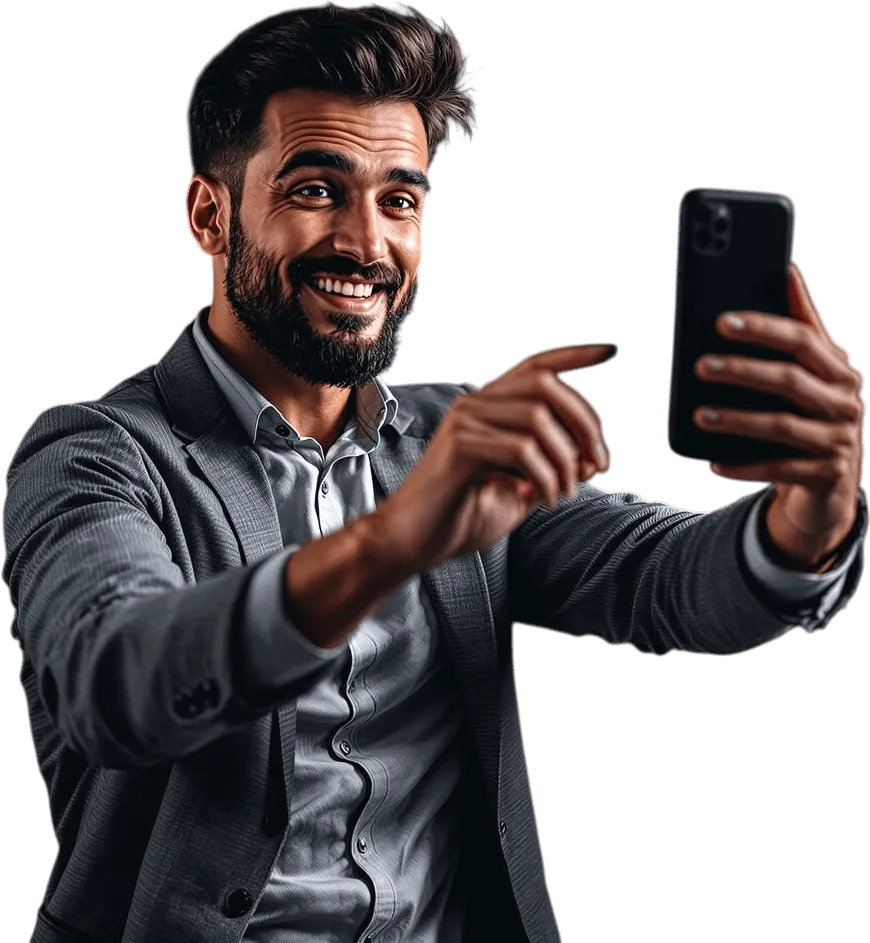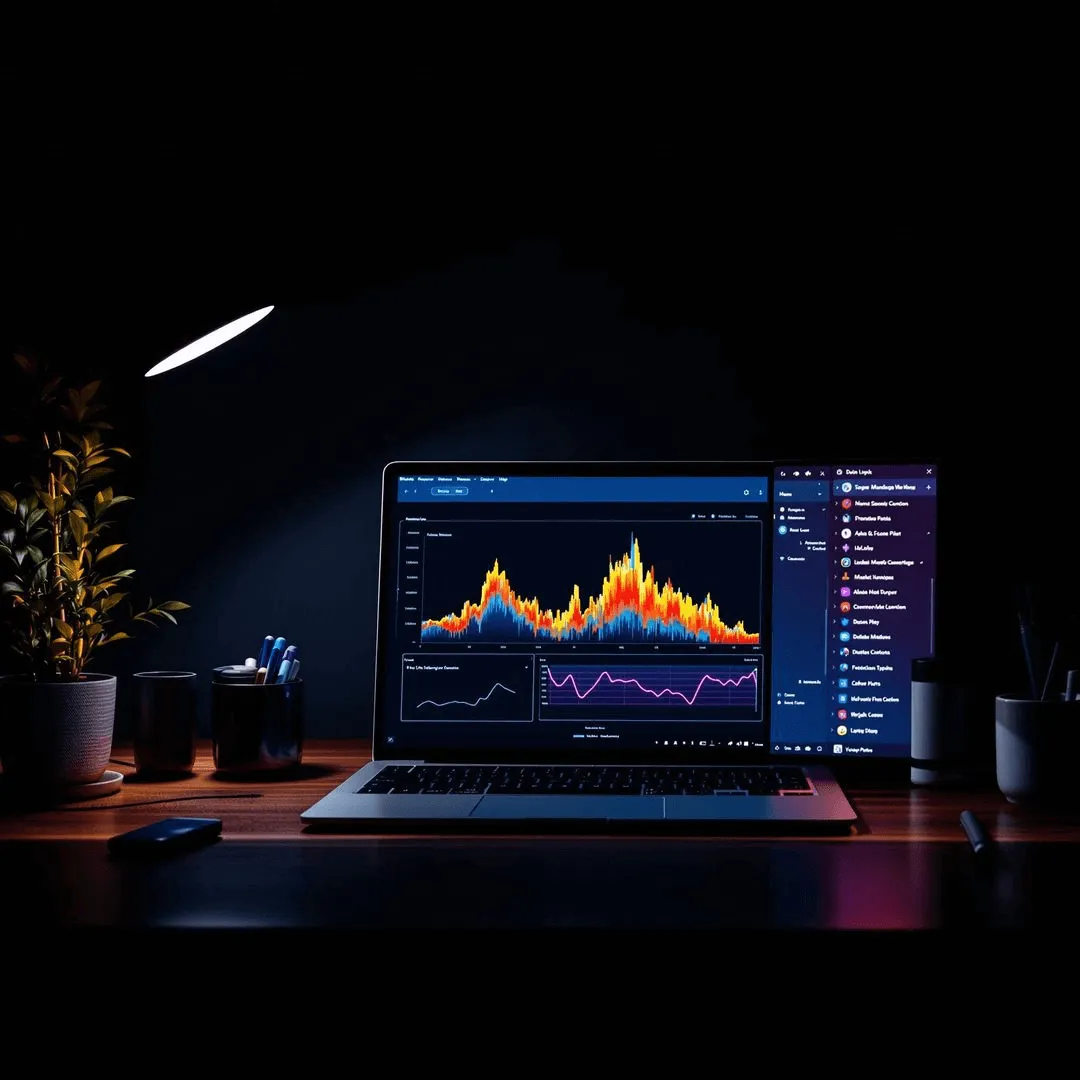In this blog we will cover
The Rise of Corporate Influencers - Why Authenticity is the New Marketing Currency
In an era where audiences crave authenticity but distrust traditional advertising, corporations have discovered an unexpected ally: influencers within their own ranks.
Enter the rise of the corporate influencer—an employee turned brand ambassador who wields social media like a sword, cutting through the noise to build genuine connections with audiences.
But is this strategy the real deal, or just another layer of marketing irony?
In this blog we will cover:
Meet the Demand for Authenticity
Reshaping Corporate Marketing
Corporate vs. Traditional Influencers
Success Stories
Building a Sustainable Programme

In this blog we will cover
The Rise of Corporate Influencers - Why Authenticity is the New Marketing Currency

In an era where audiences crave authenticity but distrust traditional advertising, corporations have discovered an unexpected ally: influencers within their own ranks.
Enter the rise of the corporate influencer—an employee turned brand ambassador who wields social media like a sword, cutting through the noise to build genuine connections with audiences.
But is this strategy the real deal, or just another layer of marketing irony?
In this blog we will cover:
Meet the Demand for Authenticity
Reshaping Corporate Marketing
Corporate vs. Traditional Influencers
Success Stories
Building a Sustainable Programme

Why Are Corporate Influencers Trending Now?
The corporate influencer trend isn’t a passing phase; it’s a direct response to shifting audience preferences. Today’s consumers, especially Gen Z, value transparency, relatability, and individual voices over polished brand messaging.
Here’s why:
Distrust of Traditional Marketing
Over the years, consumer trust in traditional advertising has significantly declined. Audiences are sceptical of glossy ads and overly rehearsed messaging.
A Nielsen study found that only 33% of consumers trust advertisements, while 90% trust recommendations from individuals they know.
Corporate influencers capitalise on this trust by presenting a more personal and relatable image.
Higher Engagement Rates
Corporate influencers’ posts often resonate more deeply with audiences.
For example, when a Deloitte employee shares a heartfelt story about their professional growth, it’s not just a "corporate update"—it’s a human experience.
These posts often outperform official brand communications, generating higher likes, comments, and shares because they strike an emotional chord.
Humanising the Brand
People connect with people, not logos. Corporate influencers provide a behind-the-scenes look at company culture, showcasing the human side of the business.
Whether it’s sharing candid moments from a team-building event or discussing workplace initiatives, these influencers help bridge the gap between the corporation and its audience.

How Gen Z is Driving the Movement
Gen Z isn’t just consuming content; they’re reshaping how it’s created and shared. Here’s their role in the corporate influencer boom:
Preference for Individual Voices
Unlike previous generations, Gen Z places a premium on authenticity. They’re more likely to engage with content that feels personal and genuine rather than promotional.
Corporate influencers, with their unpolished and heartfelt posts, fit this preference perfectly.
Social Media Savvy
Growing up in the digital age, Gen Z employees are naturally adept at navigating platforms like LinkedIn, Instagram, and TikTok.
They understand how to craft posts that resonate, from using trending hashtags to engaging in meaningful conversations in the comments.
Demand for Authentic Workplaces
Gen Z isn’t just looking for jobs; they’re looking for workplaces that align with their values. When corporate influencers share posts about diversity initiatives, mental health programmes, or sustainability efforts, it speaks directly to what Gen Z cares about.

Corporate Influencers vs. Traditional Influencers
Corporate influencers and traditional influencers differ significantly in their roles and impact.
Corporate influencers are employees who authentically represent their organisation by sharing insights into workplace culture, values, and achievements.
Their content is naturally tied to the brand’s mission and operates primarily on professional platforms like LinkedIn.
On the other hand, traditional influencers are independent creators who focus on building personal brands and monetising their content through sponsorships.
They typically operate on lifestyle-focused platforms like Instagram or YouTube, showcasing a curated version of their lives to appeal to specific audiences.
While traditional influencers can reach vast audiences, their authenticity may sometimes be questioned due to their reliance on paid partnerships.
Corporate influencers bring a unique advantage by blending personal experiences with brand advocacy, offering a level of credibility and relatability that traditional influencers often struggle to match.
Their connection to the organisation lends weight to their posts, making them a powerful tool for humanising a brand.

Case Studies: Who’s Doing It Right?
Deloitte
Deloitte has embraced the corporate influencer model, encouraging employees to share their stories on LinkedIn.
Posts about mentorship, career growth, and workplace initiatives regularly outperform the company’s official announcements in terms of likes, shares, and comments.
For example, when an employee shares their journey of overcoming challenges with the help of Deloitte’s mentorship programmes, it not only humanises the brand but also subtly highlights the company’s commitment to employee development.
Microsoft
Microsoft’s employee advocacy programme empowers staff to act as influencers by providing them with curated content to share.
The company’s focus on innovation and inclusion shines through in these posts, which often highlight groundbreaking projects or team achievements.
This strategy has significantly boosted Microsoft’s reach while reinforcing its position as a thought leader in tech.

How to Build a Corporate Influencer Programme
Ready to jump on the trend? Here’s how to create a successful corporate influencer strategy:
Identify Potential Influencers
Start by identifying employees who are already active on social media and have a natural flair for storytelling.
Look for individuals who are passionate about their work and genuinely enthusiastic about the company’s mission.
Provide Training and Resources
Not every employee is a social media expert. Offer workshops on best practices, including how to write engaging posts, use hashtags effectively, and interact with their audience. Additionally, create a library of pre-approved content that employees can personalise and share.
Encourage Authenticity
Authenticity is the cornerstone of a successful corporate influencer programme. Encourage employees to share their genuine experiences, whether it’s celebrating a project milestone or reflecting on personal growth within the company.
Avoid overly scripted or generic posts.
Measure Impact
Use analytics to track the effectiveness of your programme. Metrics like engagement rates, reach, and website traffic driven by employee posts can help you assess what’s working and where there’s room for improvement.

Potential Pitfalls to Avoid
While the benefits are clear, there are risks to consider:
Over-Monitoring Content
Employees need creative freedom to maintain authenticity. Excessive oversight can lead to posts that feel forced or insincere, which defeats the purpose of the programme.
Blurred Lines
Ensure influencers disclose their association with your company to avoid ethical concerns. Transparency is key to maintaining trust with your audience.
Scalability Challenges
Not every employee is a natural influencer. Focus on quality over quantity to ensure that the programme delivers meaningful results.

Conclusion
The rise of corporate influencers is not just a trend; it represents a fundamental shift in how brands connect with their audiences.
By placing trust in employees to share their authentic experiences, companies can forge deeper, more meaningful relationships with their customers.
This approach humanises organisations, making them more relatable in an era where authenticity reigns supreme.
As the corporate world continues to embrace this strategy, the line between marketing and storytelling will blur, and the most successful brands will be those that empower their people to become the face of their mission.
Trust, relatability, and authenticity are no longer optional—they are the future of brand advocacy. The question is no longer whether to embrace corporate influencers but how soon you can start.
Do You Need Help?
Let Us Know
We have over a decade of experience in the marketing and digital marketing industry.
If you want a serious professional to join your team and grow your business systematically or if you have any individual tasks that you need completed then please get in touch with us.

Innovation
Fresh, creative solutions.

Integrity
Honesty and transparency.

Excellence
Elite marketing services.

FOLLOW US
ABOUT US
CONTACT
LEGAL
Copyright Pecuna Factorem. United Kingdom. All Rights Reserved. 2024.
